“In response to the military alliance, Britain had to realign its war effort. […] In 1778, 65% of the British Army was in North America; by 1780, it is only 19%. In 1778, 41% of the British Navy was in American waters, and by 1780, it is down to 13%. So, what the British have to do now is they have to wage a war on a much grander scale.” ~ Frank Cogliano in Bragg
The Triumph of the Alliance
"How the French Saved America" (Shachtman)
Diplomatic recognition
France was the first country to officially recognize the United States’ independence.
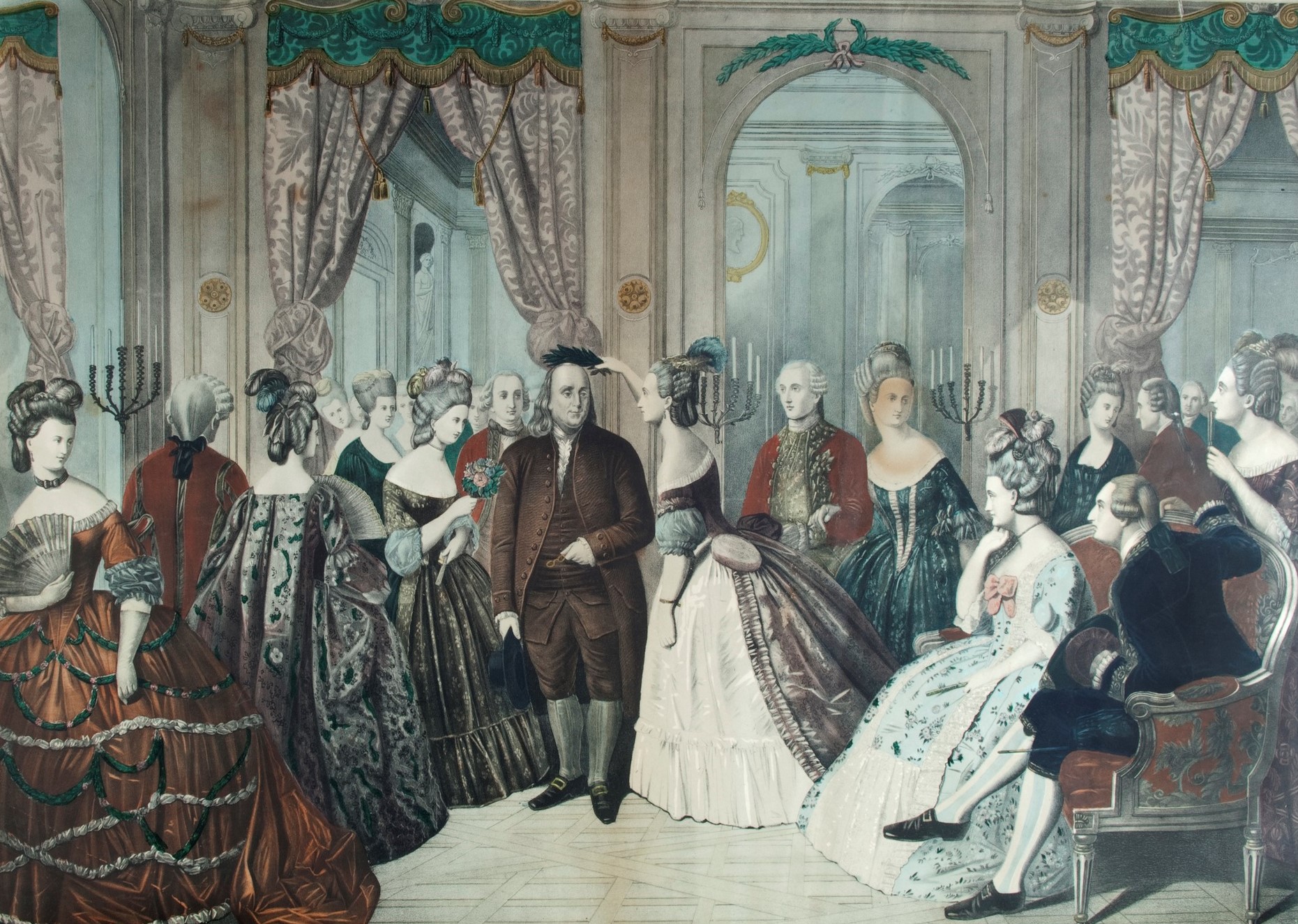
Franklin's reception at the court of France, 1778, by Anton Hohenstein, 186-, courtesy of Library of Congress
All-out war with Britain
The alliance transformed the colonies’ rebellion into an international conflict, diverting British forces to the Caribbean and Europe.
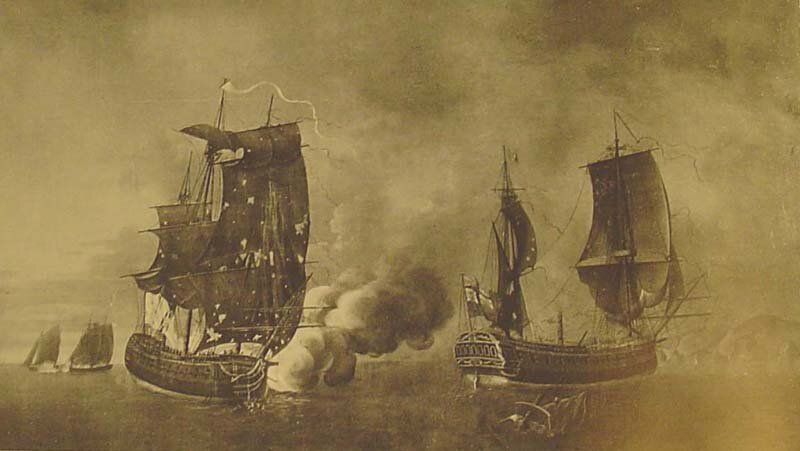
Battle between La Belle Poule and Arethuse by Auguste Louis de Rossel, 1778, courtesy of Sourdaine.org
In 1779, Spain joined the war, tipping the naval balance.
“I have the pleasure to inform you that Spain has at length taken a decisive part [in the war]. [...]
It is to be hoped that this formidable junction of the House of Bourbon will not fail of establishing the Independence of America in a short time.”
~ George Washington to Major General John Sullivan, 3 September 1779, Founders Online
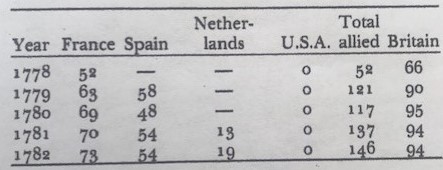
"Comparing the number of allied ships of the line in service with the number of British" from Jonathan Dull in Hoffman and Albert, "Diplomacy and Revolution," 97
The alliance’s greatest success
Additional French troops and ships enabled an American-French victory at Yorktown on October 16, 1781, paving the way for American independence.
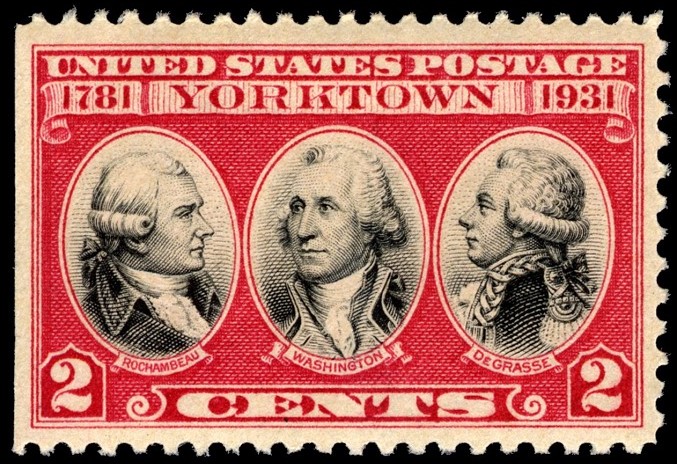
2-cent Yorktown single, 1931, courtesy of Smithsonian Institute
Strategic disloyalty
In 1782, the American commissioners, violating the 1778 Treaty, secretly negotiated a separate peace with Britain.
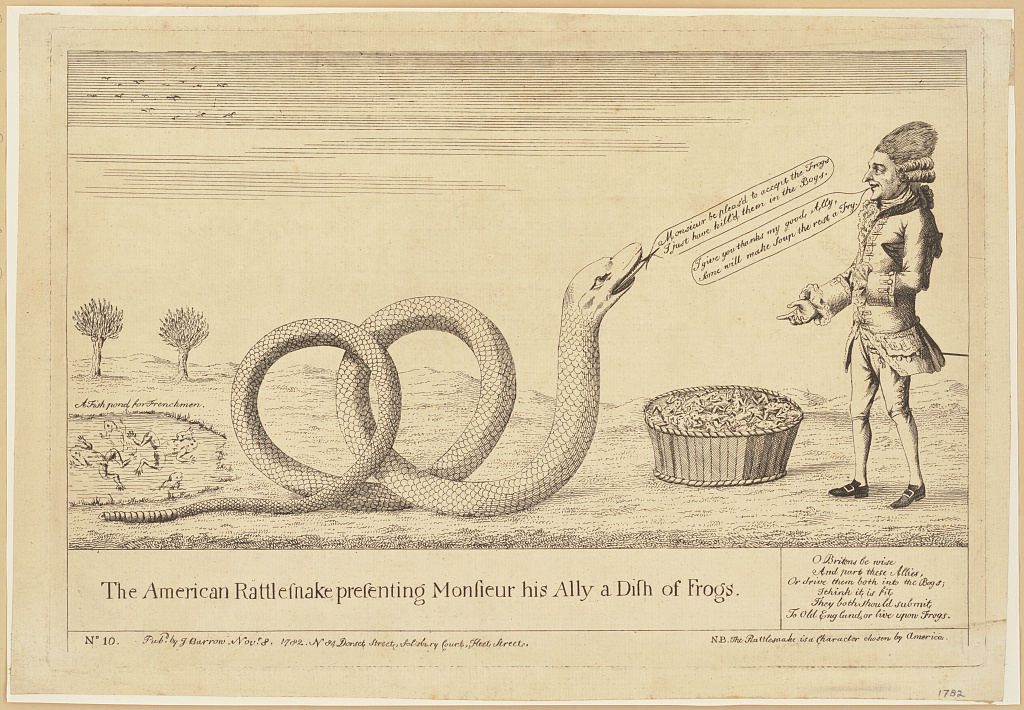
The American Rattlesnake presenting his Ally a Dish of Frogs by J. Barrow, 1782, courtesy of Library of Congress
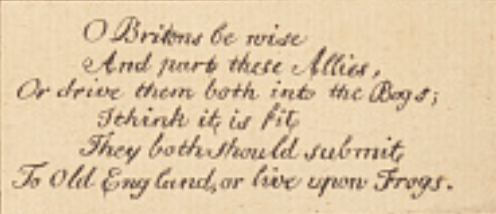
Close-up from the American Rattlesnake presenting his Ally a Dish of Frogs by J. Barrow, 1782, courtesy of Library of Congress
Franklin diplomatically apologized – once the provisional treaty was signed. Vergennes, though shocked, chose appeasement.
“I accuse no person; I blame no one, not even Dr. Franklin. He has yielded too easily to the bias of his colleagues, who do not pretend to recognize the rules of courtesy in regard to us. [...]
If we may judge of the future from what has passed here under our eyes, we shall be but poorly paid for all we have done for the United States and for securing to them a national existence.”
~ Comte de Vergennes to Chevalier de la Luzerne, French Ambassador in America, December 19, 1782, in Wharton VI, 151, 152
The 1783 Treaty of Paris
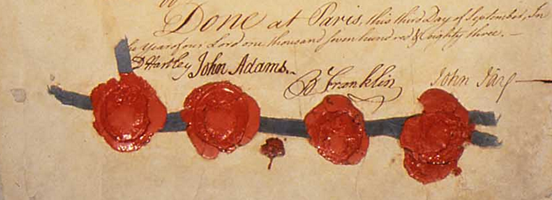
The Treaty of Paris, September 3, 1783, courtesy of National Archives.
Britain recognized America's independence, even granting it Indian territories in the West. Vergennes was amazed.
“The English are purchasing the peace rather than making it. Their concessions in fact … exceed all that I had thought possible.”
~ Comte de Vergennes to Gerard de Rayneval, December 4, 1782, in Shachtman, 301
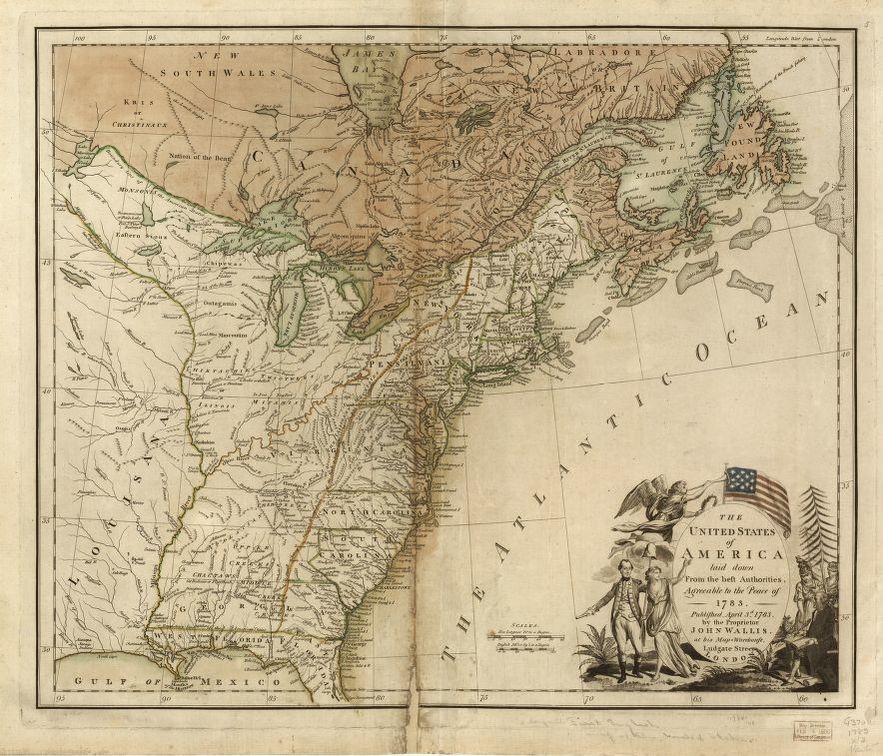
The United States of America laid down from the best authorities, agreeable to the Peace of 1783, courtesy of Library of Congress
French diplomacy was triumphant: France’s prestige had been restored.
“It yields infinite honour to our respected minister. England has been plucked bare, but to pluck the bird without making her squawk, that is the great art! This is what our leader has done, and he is truly honoured in this country.”
~ Gerard de Rayneval to Pierre Michel Hennin, January 26, 1783, in Crout 395
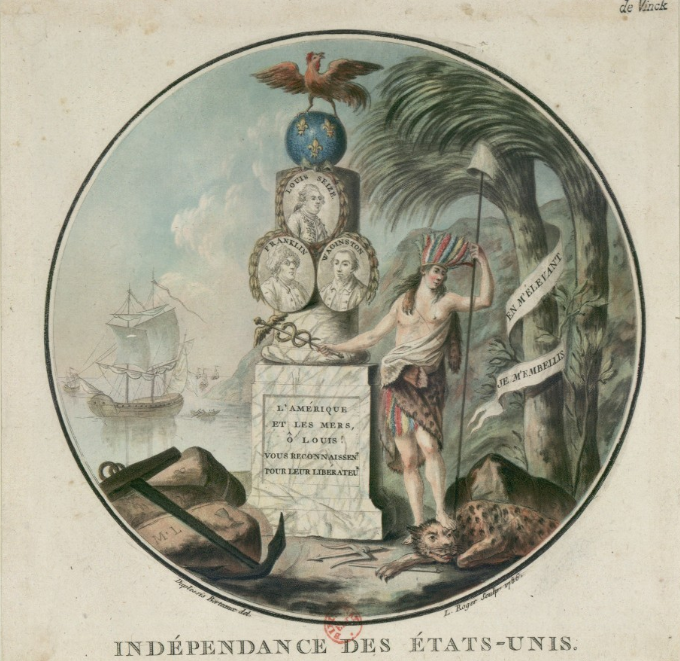
Independence of the United States by L. Roger, 1786, courtesy of Bibliothèque Nationale de France (Inscription on the pedestal: “America and the Seas, dear Louis, recognize you as their liberator”)